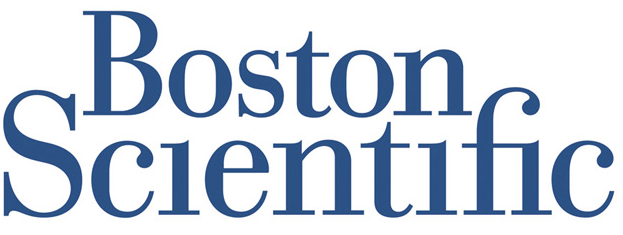Boston Scientific Corp.

Founded in 1979, Boston Scientific Corp. markets and manufactures a wide array of medical devices and products. However, the Massachusetts-based company has faced significant litigation over injuries allegedly associated with its transvaginal mesh devices.
History of Boston Scientific
Boston Scientific Corp. was established in 1979 by John Abele and Pete Nicholas in order “to benefit public health by bringing more accessible, lower cost and lower trauma medical options to patients.” Nicholas, a Wharton MBA, had been with Eli Lilly & Co. since 1968. Abele, who held degrees in physics and philosophy, had been employed selling medical devices for Advanced Instruments, Inc.
In 1968, Abele had met Itzak Bentov, the inventor of a steerable catheter that was used in less invasive surgical procedures. In 1969, Abele began marketing the catheter through Medi-Tech, Inc., a company in which he held an equity interest.
In 1976, Nicholas and Abele – who had met at their children’s soccer game – founded Boston Scientific Corporation for the purpose of acquiring Medi-Tech. The new company’s first products included flexible catheters for use in gallbladder surgery. Boston Scientific reported revenues of $2 million in the first year of its existence. During he 1980s, the company would expand its product line to include catheter-based devices for use in heart, vascular, respiratory, gastrointestinal, and urological applications.
In 1983, Abele and Nicholas sold a 20% interest in Boston Scientific to Abbott Laboratories for $21 million in order to meet the company’s substantial need for capital. By 1991 sales had reached $230 million, with earnings of $42 million.
Boston Scientific went public in 1992, at which time Abbott Laboratories sold its shares back to the company. It now boasted four operating divisions: Medi-Tech, which specialized in radiology; Mansfield, for cardiology; Microvasive Endoscopy for gastroenterology; and Microvasive Urology. Starting the fall of 1994, Boston Scientific acquired nine companies over a 16-month period for a total of $2.5 billion. These included Meadox Medicals Inc., which produced blood vessel replacement devices and Heart Technology Inc., which marketed Rotablator, a catheter with a spinning diamond bit that cleaned out clogged arteries.
In 2006, Boston Scientific acquired Guidant, a manufacturer of implantable heart defibrillators, for $27 million. However, Forbes Magazine would later dub that acquisition the second-worst deal in history, as Guidant was already embroiled in controversy related to problems with its heart devices. Between 2006 and 2012, Boston Scientific’s write-downs amounted to roughly $9 billion, mostly related to Guidant. The company’s stock would fall dramatically in the years following the Guidant acquisition.
Today, Boston Scientific employs 24,000 workers and operates 12 manufacturing facilities that market its products in 100 countries. Its businesses include Endoscopy, Interventional Cardiology, Neuromodulation, Peripheral Interventions, Rhythm Management, Urology and Pelvic Health.
Product Controversies and Litigation
TAXUS Stents
In March 2004, Boston Scientific began marketing its TAXUS drug coated stent, and soon controlled 70 percent of the market for such devices. However thousands of the stents would be recalled that same year, after doctors reported problems with deployment. Three people died and dozens were injured as a result of issues related to the TAXUS stents.
Guidant Implantable Defibrillators
Boston Scientific’s acquisition of Guidant occurred just the U.S. Department of Justice filed suit claiming that Guidant had knowingly sold certain defective defibrillators to Medicare patients from 2002 to 2005. In October 2013, Boston Scientific paid a $30 million settlement over claims related to the devices.
Transvaginal Mesh
Boston Scientific has been named a defendant in tens of thousands of transvaginal mesh lawsuits filed on behalf of women who were allegedly harmed by products used to treat pelvic organ prolapse and stress urinary incontinence. The company has been ordered to pay multimillion dollar verdicts in a few cases that have gone to trial. Boston Scientific has also agreed to settle some lawsuits, but thousands more claims remain to be litigated.
- International Directory of Company Histories (2006) “Boston Scientific Corp.” http://www.encyclopedia.com/topic/Boston_Scientific_Corp.aspx
- The Wall Street Journal (2005) “Stents Made by Boston Scientific Showed Problems After 2004 Recall” http://www.wsj.com/articles/SB112121816675784123
- The Wall Street Journal (2015) “Can Boston Scientific Finally Move on From Its Guidant Mistake?” http://blogs.wsj.com/moneybeat/2015/02/18/can-boston-scientific-finally-move-on-from-its-guidant-mistake/
- Star-Tribune (2015) “Boston Sci shares up 9 percent as investors look past quarterly loss” http://www.startribune.com/boston-beats-earnings-estimates-by-a-penny-but-takes-a-loss-in-the-quarter/337927762/
Get the latest news and litigation updates about this case by following us on Facebook. Click the "Like" button below.
Follow Us


